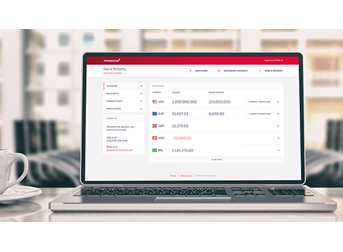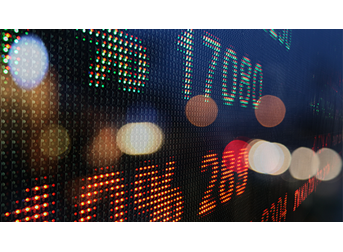Daily Market Pulse

Dollar climbs on rate hike bets
6 minute readUSD
The dollar index rose on Tuesday, reaching its highest level in 20 years after it advanced 1.02% yesterday as investors sought to use the safe-haven currency to hedge against rising inflation and recession risks. Expectations that the Federal Reserve will keep raising interest rates aggressively boosted the dollar, as a stronger-than-expected jobs report and upcoming U.S. inflation data could bolster the central bank's tightening plans. Raphael Bostic, President of the Atlanta Fed Bank, stated on Monday that the lack of month-to-month improvement in the pace of price increases justifies another 75 basis point rate hike later this month. Meanwhile, Kansas City Fed Bank President Esther George, a dissenter in last month's 75-basis-point increase, warned against abrupt rate changes that could stress the economy and financial markets.
EUR
The euro fell 1.38% on Monday and has continued to fall this morning, edging closer to dollar parity for the first time in 20 years as the energy crisis raises the risk of a recession and the dollar is boosted by safe-haven demand. On July 11th, the key gas pipeline Nord Stream 1 began annual maintenance, and flows are expected to stop for 10 days, but concerns remain that supply may not return to current levels after the work. Meanwhile, the European Central Bank is widely expected to raise key rates by 25 basis points later this month, the first increase in more than 11 years, while the Federal Reserve is expected to raise rates by 75 basis points, following a total of 150 basis points since March.
GBP
The Pound sterling fell nearly 1% on Monday and continued to fall early Tuesday. In doing so, the Cable is currently trading at its lowest level in more than two years, reflecting a global risk-off sentiment as investors remain cautious ahead of key economic data and the start of the U.S. earnings season. Meanwhile, the British Retail Consortium reported that UK sales volumes are falling at a rate not seen since the pandemic's peak, as inflation continues to bite and households cut back on spending. Investors are anticipating the release of monthly GDP figures from the ONS on Wednesday, which are expected to show the economy stalled in May, strengthening expectations of an economic contraction in the second quarter.
JPY
The Japanese Yen is in demand as a safe haven this morning, following a 1.04% drop in yesterday's session. According to the most recent data, producer prices in Japan increased 9.2% year on year in June 2022, exceeding expectations for an 8.8% increase, pushed higher by rising energy and raw material prices exacerbated by soaring import costs due to a weakening yen. The latest figure also marked the 16th consecutive month of growth, following a 9.1% increase in May. Elsewhere, the Nikkei 225 Index fell 1.77% while the broader Topix Index fell 1.64% erasing gains from the previous two sessions and tracking overnight losses on Wall Street, as investors braced for U.S. inflation data that could bolster the case for another large rate hike from the Federal Reserve.
CAD
The Canadian dollar dropped 0.38% yesterday, reaching a 20-month low before continuing to fall on Tuesday morning. Fears of a recession increased the U.S. dollar's safety appeal, reducing demand for Canadian gold and oil exports. At the same time, stronger-than-expected U.S. payroll data raised expectations of aggressive Fed tightening, boosting demand for the greenback. Despite a hawkish Bank of Canada, the dollar's momentum against the loonie prevailed. Meanwhile, according to the Bank of Canada survey, consumer inflation expectations surged to a record high in the near term and were significantly higher in the long run, bolstering bets on a rare 75 basis point rate hike later this month. In addition, new labor data showed that Canada has a record low unemployment rate, while voluntary exits from the labor market minimized Canada's unexpected job cuts.
MXN
The Mexican peso fell 1.42% yesterday and hit a four-month low before continuing to fall this morning as safe-haven flows dominated market sentiments. The latest weakness in the Peso is attributed to a strong dollar, which has hampered demand for riskier Latin American currencies. The release of a stronger-than-expected U.S. jobs report alleviated rampant recession fears, adding to bets that the U.S. economy can remain robust despite accelerated rate hikes. At the same time, Moody's downgraded Mexico's sovereign debt rating, citing poor economic trends as a threat to the country's credit profile. Nonetheless, hawkish minutes from Banxico's most recent meeting limited further losses. The release demonstrated consensus for the central bank's 75bps rate hike at the previous meeting and indicated that most members support aggressive hikes at future meetings.
CNY
The Chinese yuan closed 0.32% lower in the previous session against the greenback. The yuan fell against the dollar, reaching its lowest level in nearly a month, as fears of stricter lockdowns and wider economic disruption in China grew. Around 30 million people in China are restricted from moving as the country deals with recurring outbreaks, including the discovery of a highly contagious Omicron subvariant in Shanghai. This could stymie the country's economic recovery and force policymakers to adopt more accommodating policies. Also, the yuan fell as riskier currencies were pressured by the Federal Reserve's aggressive tightening plans and the growing risk of a global recession.
BRL
The external environment continues to guide Real’s behavior, which also suffered from domestic pressures. Yesterday, Real started the week by returning part of the gains made in the last sessions, closing day 1.21% lower. Meanwhile, China again reports new cases of Covid with risks of new restrictions or even confinement to combat the subvariant BA.5. In general, in addition to the impact on commodity prices, the scenario hampers the normalization of global supply chains, a factor that continues as an impediment to the fall of inflation around the world. Elsewhere, after deciding in the week to postpone the vote on the PEC that releases BRL 41 billion in spending just over three months from elections, the president of the Chamber, Arthur Lira is expected to call a vote later today.

